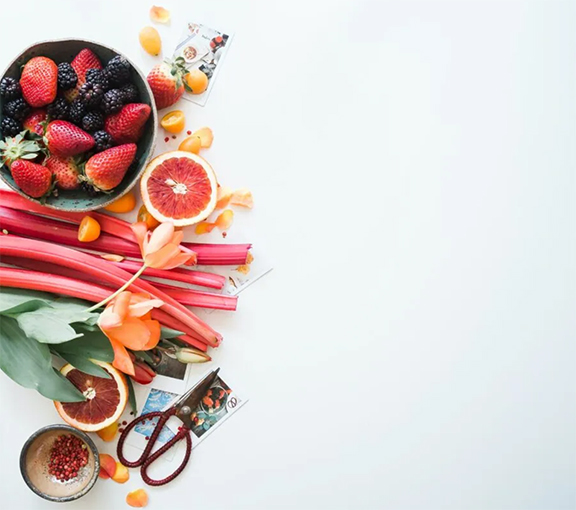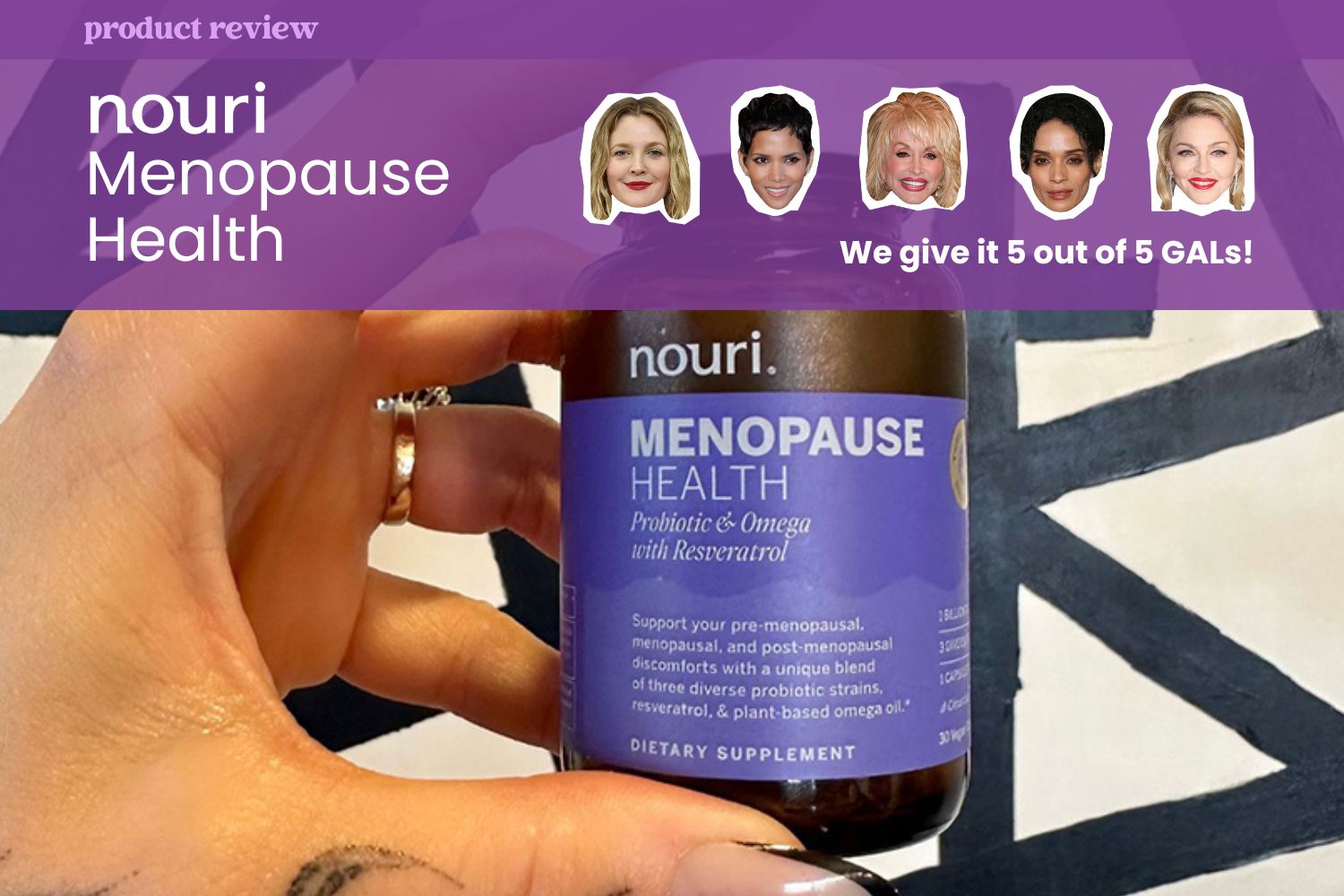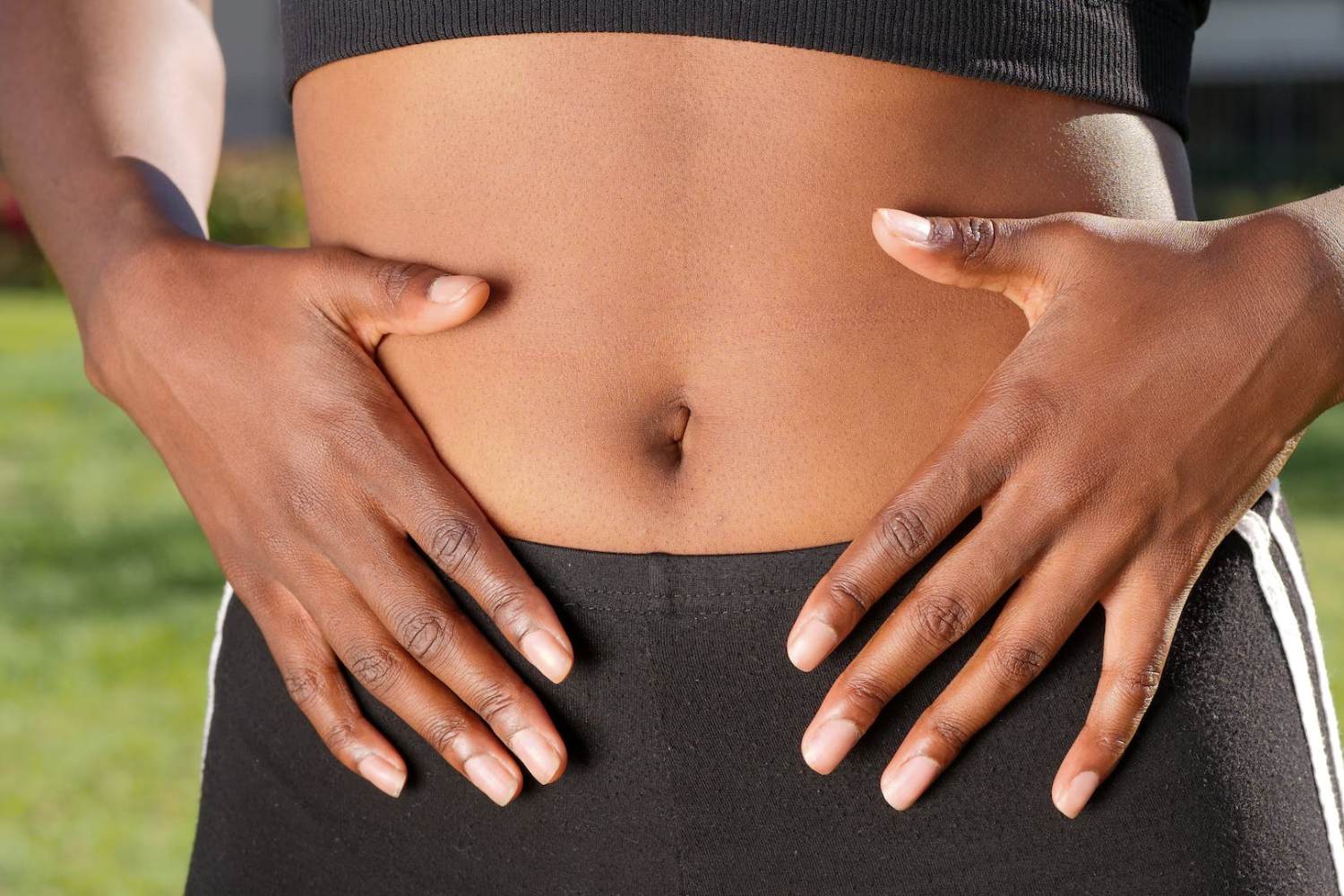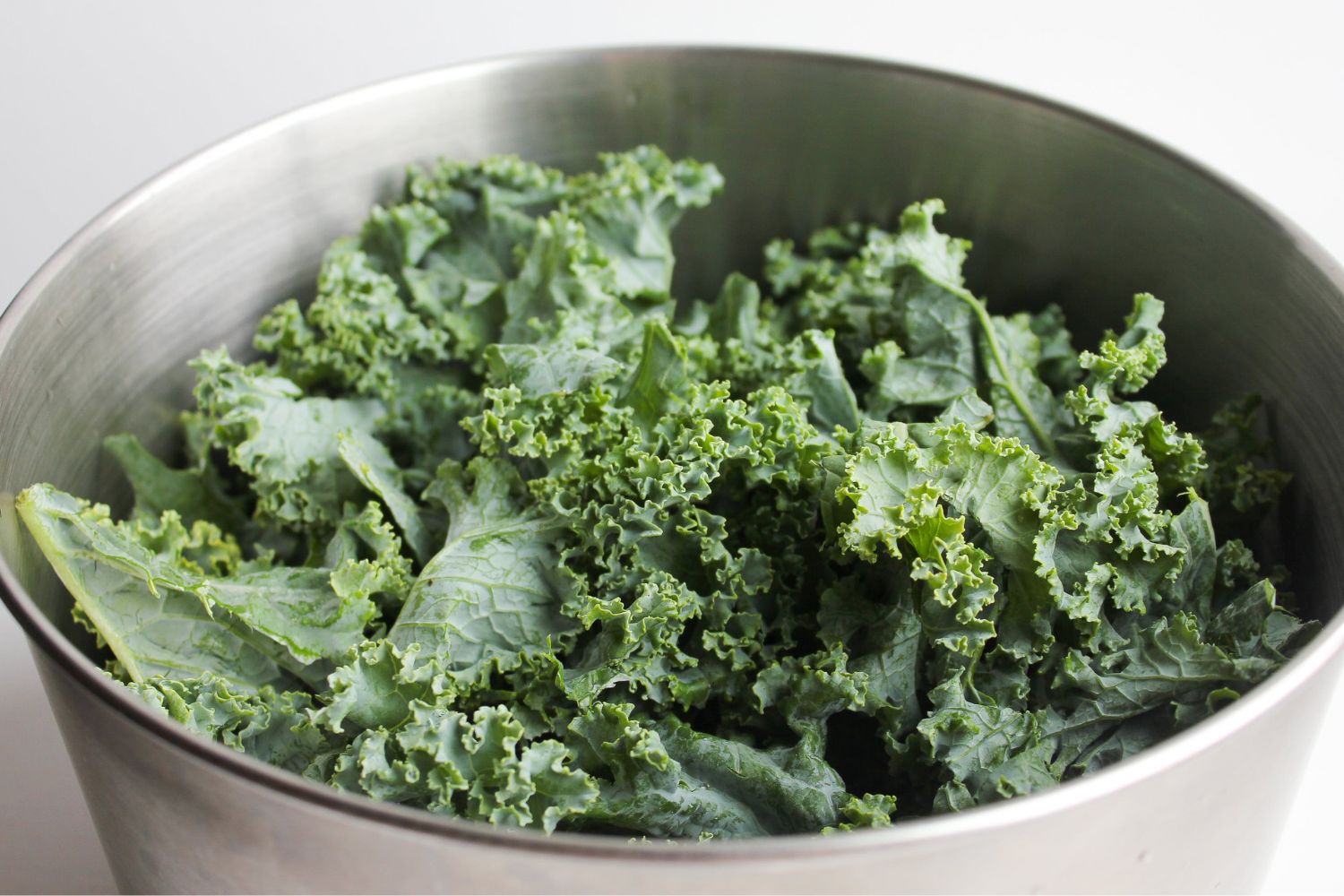Perimenopause is hard on skin, hair, and nails. Natural nutrition can help.
Acne and greasy hair belong in our teenage years, right? Think again! Thanks to the hormonal ups and downs of perimenopause, breakouts can stage a midlife comeback, along with thinning hair, itchy skin, and brittle, flaky nails. More than a quarter of American women in their 40s experience adult acne. Hormone Replacement Therapy (HRT) may help, but it’s important to remember that our skin, hair, and nails directly reflect how well-nourished we are on the inside. Focusing on natural nutrition — healthy foods and nutrients — can support hormone balance and glowing skin, healthy hair, and strong nails.
Why does menopause cause acne?
Like teenage acne, fluctuating levels of estrogen, progesterone, and testosterone cause menopausal acne.
However, this rate of decline doesn’t happen neatly, which means we have times when testosterone is relatively higher than estrogen and progesterone. This can lead to an increase in sebum production. The rate of skin exfoliation slows down too, meaning pores become more easily clogged and inflamed.
While teen acne usually affects the T-zone area (forehead, nose, and chin) menopausal acne is likely to appear on the lower cheeks and jawline.

Menopause and hair loss
According to leading trichologist (a specialist in conditions affecting the hair and scalp) Annabel Kingsley, around 40 percent of women will show signs of hair loss by the time they are 50. You might also see shorter, finer hairs growing, and hair appearing on the upper lip and chin. The rate of growth depends on our sensitivity to variations in estrogen and testosterone. Women with pre-existing hormonal issues like Polycystic Ovarian Syndrome (PCOS) are especially prone to these symptoms.
Flaky nails and dry skin
Hair, skin, and nails are mostly made of collagen, a protein found throughout connective tissues in the body. Estrogen helps regulate collagen production and when estrogen levels fall, collagen declines too.
Research shows that collagen levels fall by up to 30 percent in the first five years after menopause, and continue to drop at two percent a year after that. This decline in estrogen and collagen affects the structural framework of our skin, making it harder to retain moisture. We may notice more lines and wrinkles, and; skin can feel dry, itchy, and fragile.
A quick note about the oral contraceptive pill
Oral contraceptive pills can deplete several nutrients needed for hair, skin, and nail health, such as B vitamins, vitamin C, magnesium, and zinc. If you’ve been taking the Pill for a few years, you may need to consider supplements of these nutrients, as well as food sources to make sure you are getting enough.
The impact of natural nutrition on gut health
We’re all becoming familiar with the gut microbiome, that vast community of microbes that live in the digestive tract. Well, a skin microbiome exists too, influenced by the gut. Hormone changes can affect the balance of friendly microbes in the gut and on the skin, allowing acne-causing bacteria to thrive.
Research increasingly highlights the role of gut health in managing acne and other skin conditions. If you’re experiencing hormonal breakouts, try these natural nutrition suggestions for nourishing your beneficial gut and skin bugs:
- Include a rainbow of fruit and vegetables each day. Different color compounds feed the gut microbes and help manage inflammation in the skin.
- Incorporate fermented foods like sauerkraut, kimchi, kefir, and natural yogurt several times a week.
- Scale back on refined sugars, artificial sweeteners, and alcohol — they disturb the balance of gut microbes and worsen inflammation.

Natural nutrition: The 7 best nutrients for hair, skin, and nail health
Here are our top tips for gut health and the seven key nutrients to include in your daily diet for hair, skin, and nail health.
Collagen
Collagen-rich foods include bone broth, gelatin, fish bones, poultry, and red meat. Plant proteins like soy and legumes contain the amino-acid building blocks for collagen, but there is no evidence to suggest eating more of these foods will help collagen levels in the body as these amino acids are used in other biological pathways too.
Using a good quality collagen supplement can help during perimenopause and menopause. Opt for one that contains hydrolyzed collagen or collagen peptides as these forms are easiest to absorb.
Unflavoured collagen powder blends easily with smoothies, yogurt, and overnight oats; you can even stir it into coffee. For optimal results, you’ll need to take collagen long-term. It takes at least 6 to 12 weeks of daily collagen use to notice a difference in your hair, skin, and nails.
Zinc
Zinc is involved in lots of different biological pathways that affect skin, hair, and nail health, including:
- Collagen formation in hair, skin, and nails
- Managing inflammation
- Skin healing
- Skin sebum production
- Hormone balance
You will often find zinc as an ingredient in beauty supplements. Be sure to look for zinc citrate rather than sulfate, as the citrate absorbs better. And if you plan on taking zinc for longer than a month, combine it with copper to reduce the risk of mineral imbalance.
Zinc is in a wide range of foods, which makes it easy to increase your levels through diet. Poultry, red meat, shellfish (especially oysters), pumpkin seeds, and nuts are good zinc sources.
Magnesium & vitamin B6
Magnesium and vitamin B6 are excellent teammates for hormone support during perimenopause and menopause. They can help manage skin breakouts and acne, supporting hormone metabolism and detoxification pathways in the liver,
B6 is known to help regulate oil production in the skin and hair, and may help reduce hair loss in women with alopecia. Top up on B6 with bananas, avocado, tuna, salmon, poultry, lentils, and soy, and find magnesium in dark green leafy vegetables, nuts, seeds, and legumes.
Vitamin C
One of the most powerful natural antioxidants, vitamin C is crucial for collagen formation and skin health. Vitamin C is water-soluble and easily lost in processed foods, so be sure to opt for fresh berries, watercress, broccoli, citrus fruits, kiwi, peppers, and cauliflower for your daily boost.
Vitamin D3
The sunshine vitamin is crucial for hair, skin, and nail health. It plays a key role in managing inflammation in the body, including inflammatory skin conditions like acne. Vitamin D deficiency is common, particularly in people with darker skin, who are indoors frequently, or who cover most of their skin every day.
Foods like oily fish, egg yolk, butter, and fortified cereals supply small amounts of Vitamin D3, but often not enough to meet our needs. It’s worth seeing your healthcare practitioner for an annual vitamin D check. Most adults need to supplement with D3 during winter months and some need to take it all year round.
Vitamin A
Dry, scaly skin? Dry, itchy eyes? You may need more vitamin A in your diet. This fat-soluble nutrient is vital for skin healing and repair, and retaining moisture in skin and eye tissues.
There are two forms of vitamin A in foods:
- Ready-formed vitamin A is found in egg yolk, organ meats (especially liver), oily fish, poultry, and red meat.
- Pro-vitamin A: carotenoids found in red, orange, and yellow fruits and vegetables like carrots, sweet potato, sweet corn, apricots, and red peppers. The body converts carotenoids into vitamin A as needed.
Vegans and vegetarians rely on carotenoids for their vitamin A supplies. So if you’re plant-based, be sure to eat plenty of these sources regularly.
These seven nutrients are a great place to start to support skin, hair, and nail health. Menopause is a turbulent time for our bodies. Prioritizing natural nutrition and regular rest goes a long way toward us looking and feeling strong and vibrant.




